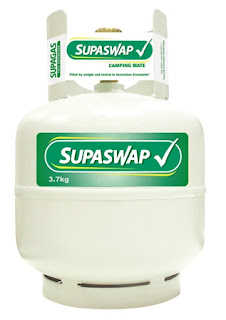Wednesday, 24 August 2011
Do I require a regulator for helium?
Yes, all helium cylinders require a regulator to dispense the helium into the balloons.
How many 30 cm balloons do I get out of a helium cylinder?
GX (9.1m3) = Approximately 800 balloons
E (3.5m3) = Approximately 300 balloons
D (1.2m3) = Approximately 100 balloons
CL (0.6m3) = Approximately 50 balloons
E (3.5m3) = Approximately 300 balloons
D (1.2m3) = Approximately 100 balloons
CL (0.6m3) = Approximately 50 balloons
What is the difference between LP Gas and Natural Gas?
They are similar in terms of usage, but natural gas cannot be stored and transported as a liquid and therefore is not widely available.
How long should a forklift cylinder last?
Approximately 6-10 hours of operational use depending on the size of the forklift motor and depending on other variables.
Is LP Gas used to fuel motor vehicles?
Yes, LP Gas is used to fuel motor vehicles, however usually a combination of propane and butane (also known as blend or Autogas) is used. It's different to heating gas, domestic gas and BBQ gas, which is 99.99% propane.
Is LP Gas toxic?
All LP Gas is absolutely non-toxic, non-corrosive, clean burning and non-polluting. But if inhaled in sufficient volumes it can cause suffocation.
Why does LP Gas smell?
As a safety feature, a strong, distinctive odour is deliberately added to LP gas for the detection of even minor leaks.
How can I tell if my cylinder is leaking?
You can spray the fittings on the top of a cylinder with a bottle of soapy water when the line is pressurized. If your cylinder is leaking the gas will create bubbles in the soapy water. If this is the case you must turn off the gas supply and contact your gas supplier.
How can you tell how much gas is left in an LP Gas cylinder if there is no gauge?
There is no perfect way to tell but for a general idea, just pour a cup of warm/hot water on the side of the cylinder and because LP Gas is so cold, a condensation line forms and you will be able to clearly see the level of liquid.
What is LP Gas?
LP Gas stands for liquefied petroleum gas which describes propane and butane gases. When stored under pressure, they become a liquid and take up much less space, making LP Gas easy to transport.
Subscribe to:
Comments (Atom)







